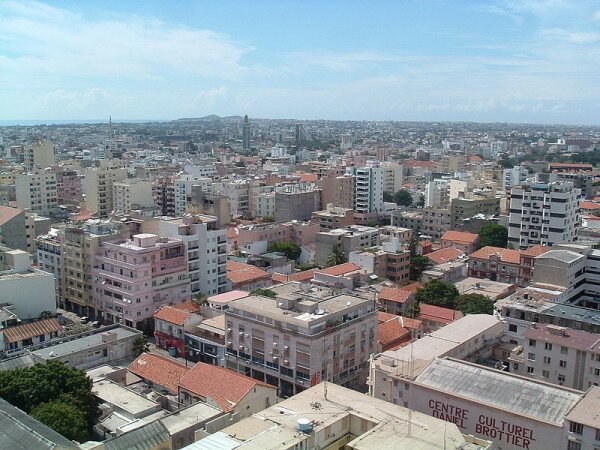
Dakar, capital of Senegal. CC image courtesy of Initsogan.
Senegal’s position as an entry into Francophone Sub-Saharan Africa as well as the level of technological development mean the country’s startups have great potential, according to accelerator programme CTIC Dakar.
HumanIPO reported yesterday on CTIC Dakar, the first accelerator and incubator for IT entrepreneurs in Francophone Sub-Saharan Africa, which has secured US$150,000 in investments for its startups so far this year.
Yann Le Beux, catalyst at CTIC Dakar, told HumanIPO that though the market in Senegal was small – the country has only 13 million inhabitants – it had great potential for firms as an entry into the rest of the region, with Francophone Sub-Saharan Africa having a population of more than 350 million.
“Senegal has for us a tremendous potential,” said Le Beux. “For historic and administrative reasons, it is pretty easy for a company based in Senegal to access this regional market. Furthermore, a large number of international corporations or NGOs are headquartered in Senegal for west and central Africa.”
He also said Senegal has a good higher education system, with more than 200 institutions and several international campuses which attracts students from other countries and creates a large talent pool.
“Finally, the IT infrastructure and connectivity is good and the mobile penetration rate is close to 90 per cent now,” Le Beux said. “3G is well used and 4G is in its pilot phase.”
HumanIPO reported yesterday the latest Ookla Net Index, reporting average broadband speeds based on individual IP tests, placed Senegal in 14th place.
Le Beux said all these factors mean Senegal has an opportunity to make a global impact through ICT.
“We work night and day at CTIC to achieve this,” he said. “Senegal is already taking advantage of its very high level diaspora to boost global Senegalese companies. They start businesses back home and bring a lot a business and technology practices and then use their international connections to scale globally.”
He said with the rapidly growing internet penetration rate, Senegal is an ideal place to test business models and products for the francophone and global market. He said what was needed now was for the country to attract more international private investments.
“We need more private investment at the seed stage,” Le Beux said. “We now have several VCs based in Senegal or looking closely at it, but we need a few more business angels to really help the startups get off the ground. A public innovation fund could be a good tool to trigger the angel industry, by a match-making grants system for instance.
“Also, like many other countries in Africa, Senegal lacks good graphic designers who can work with engineers – this is really holding back the mobile apps industry. The cost of electricity is also still a break for young companies.”


















